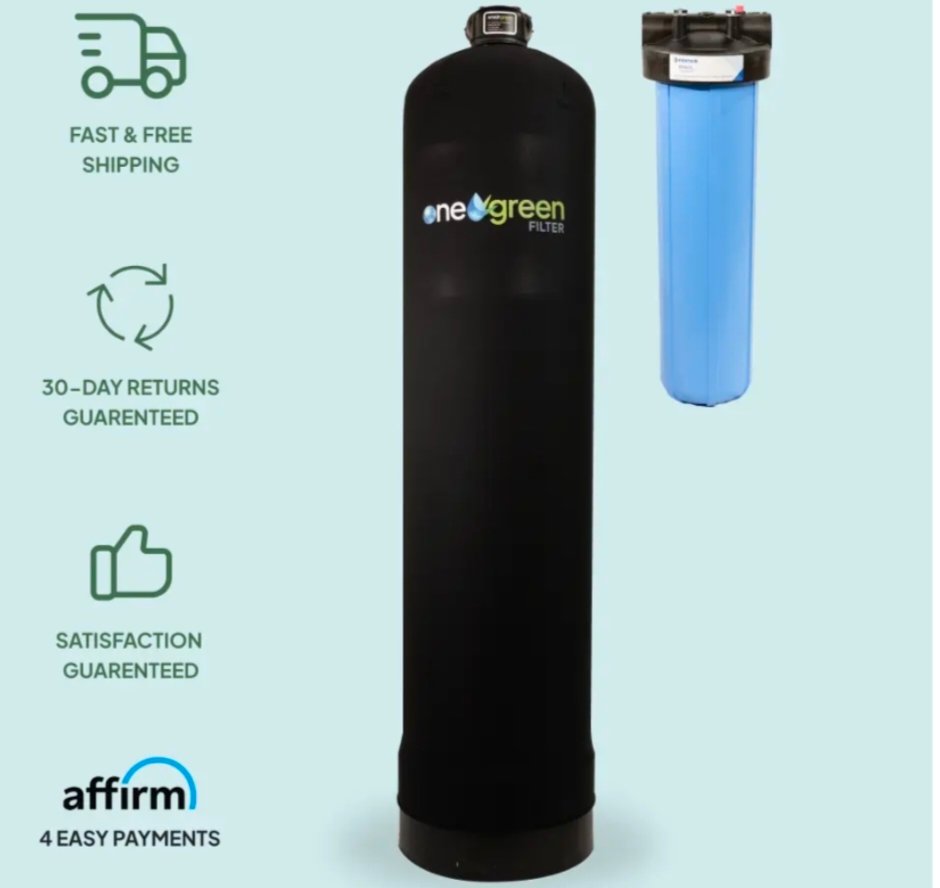As concerns about environmental sustainability grow, homeowners are searching for eco-friendly alternatives to traditional water softeners. Conventional salt-based water softeners, while effective at reducing hard water, have negative environmental impacts. They use large amounts of salt, discharge sodium into the wastewater, and consume a significant amount of water during the regeneration process. Fortunately, there are several eco-friendly water softener alternatives available that offer effective solutions without harming the environment.
In this article, we’ll explore the best sustainable alternatives to salt-based water softeners, how they work, and why they’re a better option for the environment.
The Environmental Impact of Traditional Water Softeners
Before diving into alternatives, it’s important to understand why traditional water softeners may not be the most sustainable choice. Standard salt-based softeners work through ion exchange, replacing calcium and magnesium ions (which cause hardness) with sodium ions. However, this process has several drawbacks:
- Excessive salt use: Traditional softeners require regular additions of salt, which can lead to increased sodium levels in wastewater.
- High water consumption: The regeneration cycle in salt-based softeners uses significant amounts of water, contributing to water wastage.
- Negative effects on plants and soil: The sodium in softened water can disrupt plant health and degrade soil quality, making it difficult to reuse the water for irrigation.
- Impact on septic systems: Saltwater from the softener can interfere with the natural bacteria in septic systems, leading to inefficiencies and potential damage.
With these concerns in mind, eco-conscious homeowners are turning to more sustainable solutions.
Eco-Friendly Alternatives to Salt-Based Water Softeners
1. Template-Assisted Crystallization (TAC)
Template-Assisted Crystallization (TAC) is one of the most popular and effective eco-friendly alternatives to salt-based water softeners. Instead of removing the minerals from the water, TAC systems use a catalytic media that converts calcium and magnesium ions into harmless microscopic crystals. These crystals remain in the water but do not adhere to surfaces, preventing limescale buildup without using salt or discharging sodium into the environment.
- Benefits:
- No salt or chemicals required
- No water waste during regeneration
- Easy to maintain with minimal upkeep
- Effective at reducing scale buildup
- Best for: Households looking for a low-maintenance, sustainable solution to hard water.
2. Electromagnetic Water Conditioners
Electromagnetic water conditioners, also known as electronic descalers, use electromagnetic waves to alter the structure of hard water minerals. These systems prevent the minerals from sticking to pipes and appliances, reducing scale buildup without physically removing the calcium and magnesium. While these systems don’t soften the water in the traditional sense, they offer an eco-friendly way to mitigate the effects of hard water.
- Benefits:
- No chemicals, salt, or water waste
- Easy to install and maintain
- Low energy consumption
- Best for: Homes looking for a chemical-free solution to reduce limescale in appliances and plumbing systems.
3. Magnetic Water Softeners
Magnetic water softeners are another salt-free alternative that uses magnets to alter the properties of water minerals. By passing water through a magnetic field, the structure of calcium and magnesium ions is changed, making it more difficult for them to form limescale. Magnetic softeners are easy to install and maintain, but their effectiveness can vary depending on the water composition and flow rate.
- Benefits:
- Chemical-free, salt-free solution
- No ongoing maintenance required
- Simple installation
- Best for: Homeowners seeking a low-cost, eco-friendly way to reduce scale buildup in areas with moderately hard water.
4. Potassium Chloride Water Softeners
For those who still prefer a traditional ion exchange system but want a more environmentally friendly option, potassium chloride can be used in place of sodium chloride (salt). Potassium chloride water softeners function similarly to salt-based systems but use potassium, a more plant-friendly nutrient, instead of sodium. While not entirely salt-free, potassium chloride is a healthier alternative for the environment, particularly when it comes to irrigation and septic systems.
- Benefits:
- Reduces sodium levels in softened water
- Safer for plants and soil
- Ideal for areas where softened water is used for irrigation
- Best for: Homeowners seeking an alternative to salt while still using an ion exchange system.
5. Carbon Filtration Systems
While carbon filtration systems are not technically water softeners, they can help reduce some of the effects of hard water. Activated carbon filters remove impurities and contaminants, improving the overall quality and taste of water. Some carbon filtration systems are also designed to reduce scale buildup, making them a useful complement to other water softening methods.
- Benefits:
- Removes chlorine, chemicals, and other contaminants
- Improves water taste and quality
- Reduces some scale buildup
- Best for: Homes with moderate hard water and a focus on improving overall water quality.
How to Choose the Best Eco-Friendly Water Softener Alternative
When selecting the best eco-friendly water softener alternative, consider the following factors:
1. Water Hardness Level
Start by testing your water to determine the level of hardness. If your water is extremely hard, a more robust system like TAC may be necessary, while households with moderately hard water may benefit from magnetic or electromagnetic systems.
2. Installation and Maintenance
Some systems, like magnetic water softeners, are easy to install and require little to no maintenance. Others, like TAC systems, may need occasional media replacement. Consider how much time and effort you’re willing to invest in maintaining your water softening solution.
3. Environmental Impact
If minimizing your environmental footprint is a priority, opt for solutions that do not use salt or chemicals, such as electromagnetic water conditioners or TAC systems. These systems are not only better for the environment but also help conserve water and reduce long-term costs.
4. Budget
Eco-friendly alternatives vary in price, from relatively inexpensive magnetic water softeners to more advanced TAC systems. Consider your budget and the long-term savings from reduced maintenance and water consumption.
Conclusion
As environmental awareness continues to grow, many homeowners are seeking more sustainable and eco-friendly ways to treat hard water. Whether you choose a TAC system, electromagnetic water conditioner, or magnetic water softener, these alternatives offer effective solutions without the environmental downsides of traditional salt-based water softeners. By opting for an eco-friendly system, you can enjoy the benefits of softened water while reducing your impact on the planet.



